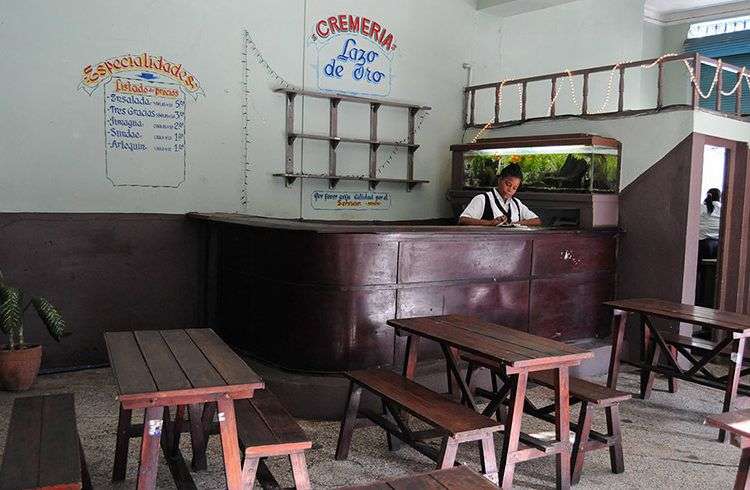The slow pace of reforms in Cuba is been justified on the grounds that they do not want to make mistakes. Each step they move up is preceded by a pilot period during which they assess the consequences of changes.
No doubt this is a new style of doing things, to have practice over inspiration. However, many Cubans are getting impatient because often times last more than what they consider necessary.
The case of the catering businesses is a good example. It is clear to all Cubans that the state cafes and restaurants function generally disastrously and today is the private sector that provides the best services.
But the transfer of that sector to cooperatives or private hands is moving at snail’s pace even though anyone who drops by a state cafeteria can see the poor quality of the offers, in the case that it is offering anything beyond cigarettes and rum.
There is a cafeteria in my neighborhood that for years people call, “the palace of the Flies”, by the number of these animals that inhabit it. Interestingly enough, the same inspectors that so strictly monitor private ventures in the area fail to visit this one.
I have a good friend who opened a very successful cafe in the middle of Guanabacoa town and has waited for years for the possibility of contracting with the state one of the most dilapidated facilities in the area to turn it into a thriving business.
It is true that much of the prosperity of these private businesses comes from the fact they buy their supplies at low prices on the black market, which come out of the State warehouses, and should have stocked the state cafeterias.
It is the snake that bites its tail. This happens in part because the government hasn’t decided to open wholesale markets at preferential prices for self-employed persons and cooperatives, as there are everywhere in the world.

According to some Cuban economists these markets, in addition to providing benefits to self-employed, will allow the State to be more effective in collecting taxes since by having control on perishables it allows it to calculate the profits of a business.
The truth is that the slowness and indecision in implementing these policies has paralyzed the number of self-employed persons, which prevents the state from continuing layoffs of gloated payrolls of their institutions and ministries.
If economic plan for the future is that half or more of the Cuban population will work autonomously whether as self-employed, cooperatives and farmers, the government should act more decisively, in a more coherent and comprehensive way.
It would be logical if a deadlock is detected, the authorities provide better facilities to attract new workers to the non-state sector. Wholesale markets, tax reduction, bank loans, variety of inputs and access to machinery and tools.
A change of mind is also needed to move beyond an economic USSR Stalinism, condemning all private initiative and move towards a diversity of forms of property that even Marx and Lenin accepted for socialism.
Even today in the media and in speeches by some leaders every time they talk about corruption they mention the private sector; while the constant ousting of venal leaders in the “socialist state enterprises” is hidden.
What is certain is that the growth of self-employment and cooperatives will improve income for many more Cuban, while the state payrolls will be reduced and that will enrich the national coffers with increased tax contributions.
This virtuous circle can bring the government the financial surplus necessary to increase wages in the sectors that are essential such as education, which are still far below the value of the national food basket.










